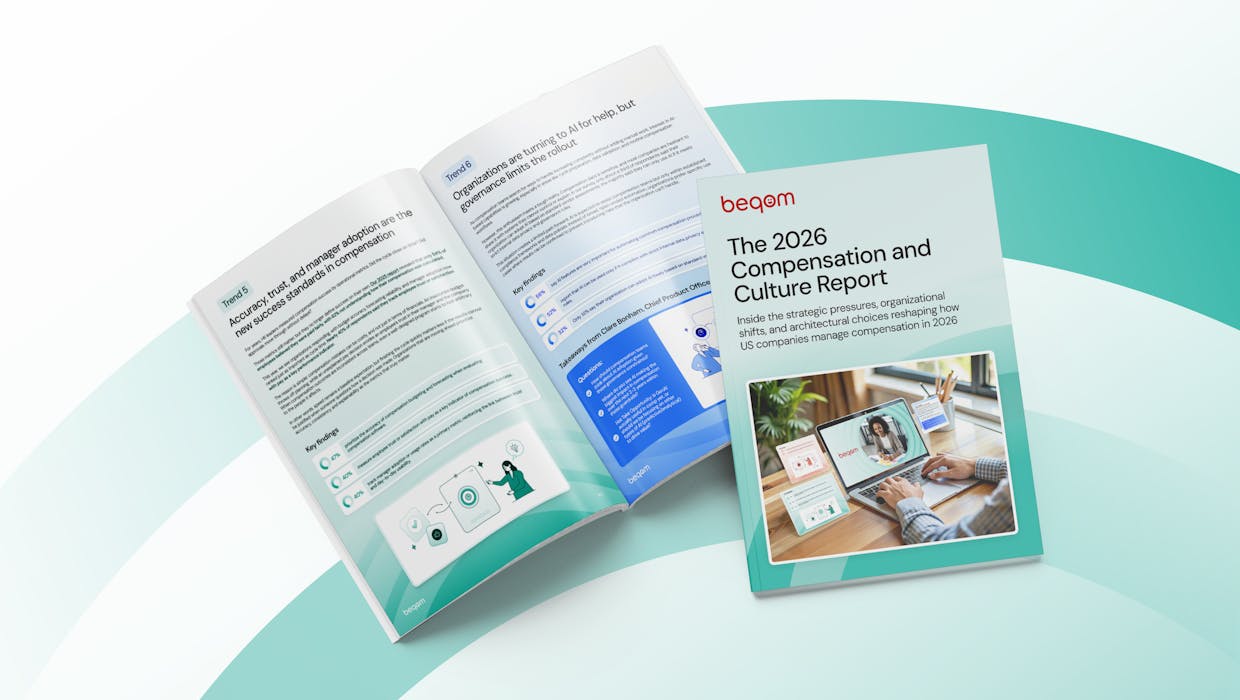What Are the Challenges in Global Compensation Management Processes?

Learn more about the following beqom products
The planning and executing of compensation on a global basis is highly challenging as organizations seek to create consistent processes in multiple countries, while still allowing local flexibility. When it comes to compensating a globally dispersed workforce, organizations have to manage a number of challenges.
We spoke with Peter Devlin, Head of Total Rewards at Deloitte Germany, to hear what he thinks any company that is doing international compensation planning needs to take account of.
Compensation challenges
You can read through the challenges in more detail below.
Regulations
Compensation is facing constant application of regulatory rules, with variations from country to country. Organizations will spend much more time dealing with the intricacies of these regulations, which are subject to constant change, along with the administrative burden that accompanies them. One particular area to watch is pay equity and pay transparency. Regulations such as the EU Equal Pay Directive and US state-level fair pay and transparency regulations make this a complex area to stay on top of.
Administration
The administration that is associated with the constant regulatory changes means that a solution must be in place that can cope with the requirements for recording, testing, and calculating the correct payouts at each particular point.
Organizations have realized tremendous bottom-line savings from a reduction in the total cost of ownership over existing on-premise solutions. The elimination of errors is one of the easiest ways to gain control of escalating costs with the most common reason for compensation processes going wrong often relating to a simple administrative error.
Market practice in each country
When it comes to compensating a globally dispersed workforce, organizations need to manage the market practice in each country.
Finding a balance between a global view and local execution is always a challenge. Bonus plans, merit increase policies and benefits need to be consistent throughout your global organization. On the other hand, local labor contracts and compensation practices may require some flexibility and adaptability.
Centralized systems offer greater budgetary control, along with increased visibility into the compensation cycle and performance review processes. An audit trail will be apparent to demonstrate compliance.
Governance
Scrutiny of executive compensation is more intense than ever, and large corporations have to question who decides the pay levels, who controls the payments, and how does it cascade through the organization? At the senior pay level, there is a tendency to become more centralized, with salary levels, incentives, and other pay elements needing to be aligned with company compensation strategies.
Reporting requirements
Much like regulations, reporting requirements vary by country and need to be taken account of. Organizations have to provide accurate models and what-if scenarios to properly design revenue-based compensation plans during the forecasting cycles and simulate changes throughout the year to continually align compensation to business goals and revenue recognition requirements.
Shareholders
What do your shareholders think? Unlike the private sector, a publicly listed organization will have proxy advisors on senior pay, with shareholders who are generally much more involved, and much more interested in how companies are paying senior management. Transparency and proper communication are key to maintain a dialogue regarding compensation strategy and practices.
Taxation
If your organization is delivering rewards via LTIPs or other deferred compensation plans, there is a vast array of taxation issues that are all country-dependent. You need to understand what the tax consequences are of the LTIP, and the administrative effort required to implement and maintain.
All of these challenges come together, forming a complex subject that has to be taken care of. With beqom, you will have the necessary features allowing you to balance the required global consistency with the adaptability to manage country-specific needs, defining a global process and then adapting it by region or organization.
Contact beqom today to speak to one of our compensation experts about how technology can streamline your compensation planning.








